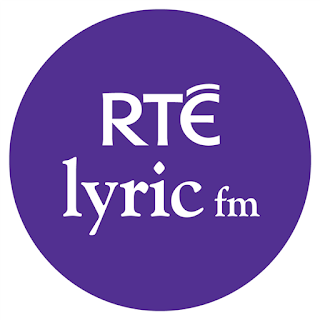Why does every radio station play the same music?
Most music radio stations in Ireland have what's known as an Adult Contemporary format. This was imported from America in the 1980s when aggressive heavy metal and crude rap were emerging as genres, but the soccer moms and 9-5 office workers wanted a more predictable listen. Excuse the terminology, but trust me - you'll be familiar with the format. You'll hear some new music, songs you know from the past couple of years and a few 80s and 90s classic hits thrown in for good measure, but you'll rarely anything with too much rap or dance music.
This format generally appeals to a broad demographic of 25 - 44. These are the people who advertisers drool over: they've got stable jobs (they have money), they've probably got kids (they'll have to spend money on them), they probably go on holidays once a year and enjoy leisure time. Any younger than 25 and they don't have money and any older than 44 they're dreaming about packing up and moving to the South of Spain for retirement, or supposedly we're told.
 |
| Ed Sheeran is a hallmark of most Irish radio stations' playlists. |
The dark purple outlier on the FM spectrum is RTE Lyric. It's provides a refreshing and eclectic musical journey where you will hear Chopin alongside Miles Davis, Aretha alongside Nils Frahm and the Ed Sheeran of the 1730s: Bach. This makes it an accessible listen, too. Marty Whelan presents a witty, upbeat breakfast show. The station has even caught the attention of twentysomething social media influencer James Kavanagh, who regularly raves about the Saturday afternoon Movies and Musicals show on his Instagram stories to his millennial fans.
The most played song on Lyric FM was played 5 times in the past 7 days. Compare that to Sunshine 106.8, aimed at a similarly-aged demographic, which can't get enough of Gavin James' Always, having played it 57 times in the past 7 days. If ever there was an Irish station to make the bold claim 'we don't repeat our music', it's Lyric. Presenters have near full autonomy over the music they play, a luxury which is nearly extinct in Irish music radio. They share their personal taste and recommendations with listeners.
 |
| The most-played songs on RTE Lyric FM over the past 7 days. Source: Radiomonitor (https://media.info/radio/stations/rte-lyric-fm/playlist) |
As the audio world becomes more competitive, radio has become more fragmented. The way forward is in specialisation, or narrowcasting, as opposed to broadcasting. Just as we have a Spotify playlist for every mood one could possibly experience, or for any genre one could name, radio stations have been doing the same. This trend has played out in the UK lately with a raft of new digital radio stations launching. There's Union Jack, which plays British music only, Encore Radio, which exclusively plays songs from musicals and Share Radio, which gives savvy financial advice. Some people in the industry would argue that the former two are merely Spotify playlists in themselves, as they have no presenters, the only difference being that you cannot select which song comes next. I like to think that they retain the magic and tentativeness of radio: waiting to be surprised what song somebody will choose to play next. They're also tied to existing radio brands.
Unfortunately I can talk endlessly about the cultural value of Lyric, but it comes down to one thing: the Benjamins. RTE is in a financial crisis (as it has been telling us since the recession), and it requires an injection of cash from somewhere.
 A short term solution which might make sense is downsizing their trophy family home in Donnybrook to a less salubrious location on the outskirts of the city. This could be a culture shock to the team which pejoratively gave TV3 the name 'Tallaght TV' when it launched in Ballymount in the late '90s. The RTE D4 pile is very valuable. Less than 9 acres of land were sold on the prized site for over €100 million in 2017. Obviously this is a short-term measure to plug the gap, but it is a serious way to raise funding for the broadcaster.
A short term solution which might make sense is downsizing their trophy family home in Donnybrook to a less salubrious location on the outskirts of the city. This could be a culture shock to the team which pejoratively gave TV3 the name 'Tallaght TV' when it launched in Ballymount in the late '90s. The RTE D4 pile is very valuable. Less than 9 acres of land were sold on the prized site for over €100 million in 2017. Obviously this is a short-term measure to plug the gap, but it is a serious way to raise funding for the broadcaster.More cooperation with competitors (or coopetition as they call it in the textbooks) is required. In a fragmented media landscape we cannot afford to look linearly at the competition anymore. Pooling resources between RTE and Virgin Media One would be a means of sharing costs and uniting against the real threats to viewership: Netflix and Hulu.
Out of all that RTE offers, Lyric FM is one of the products which the commercial sector has not competed with and most likely will not provide in the station's absence. It represents one of the last vestiges of diversity in Irish music radio and it would be a great loss to Irish listeners to see it go.
Comments
Post a Comment